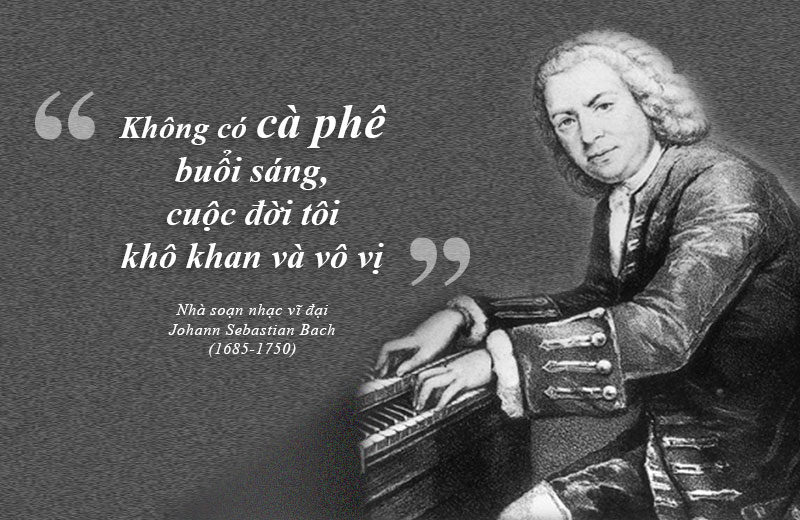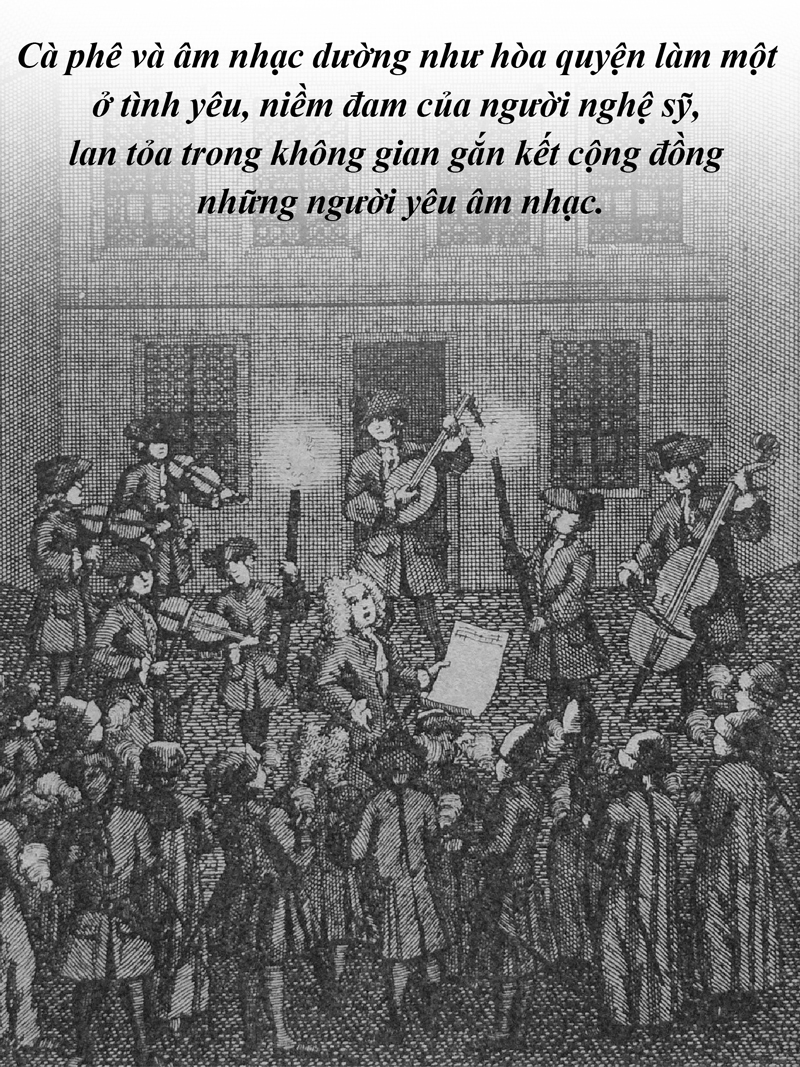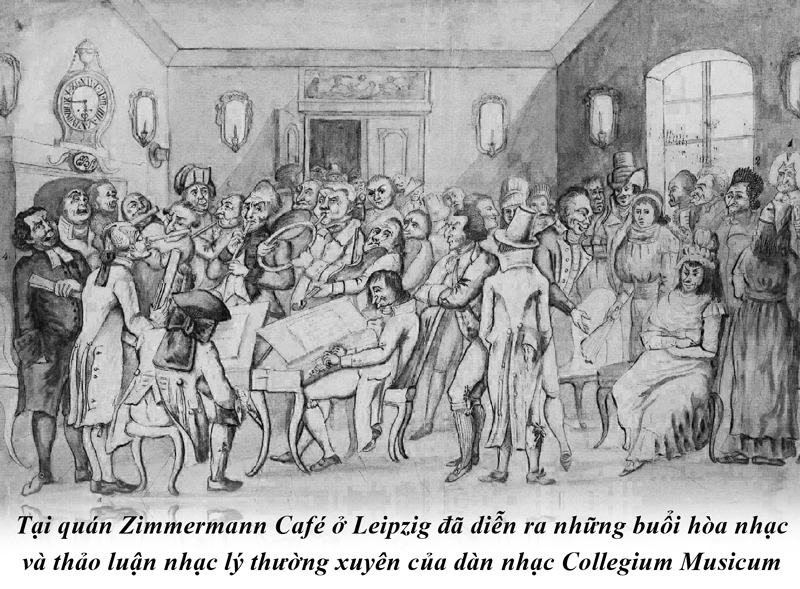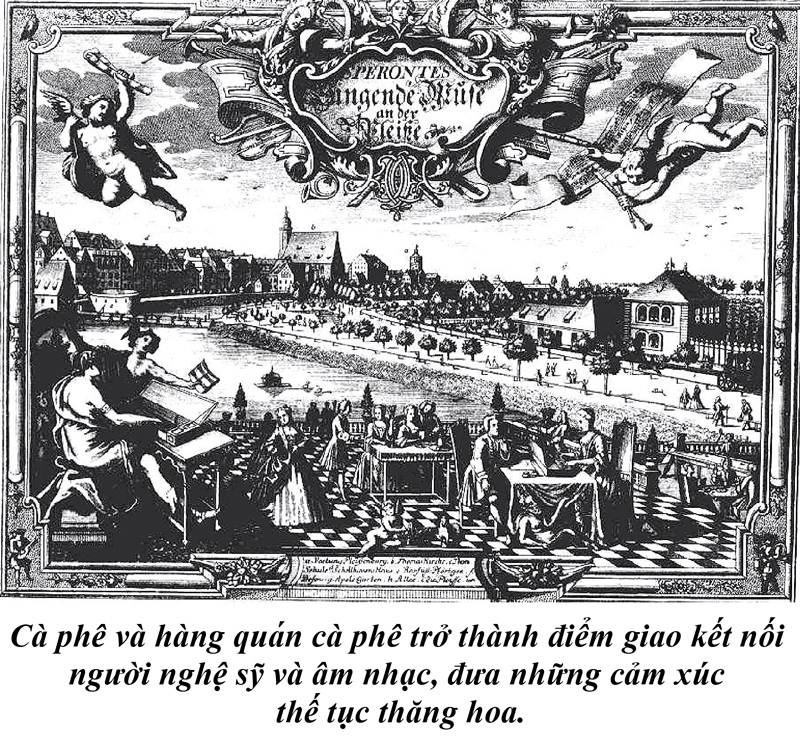Article 47: Coffee in the process of musical sublimation by Johann Sebastian Bach
Coffee came to Europe with awakening energy, strongly influencing the limitless creative possibilities for composers of this period with a large number of classical music works.

“Without my morning coffee, I’m just like a dried-up piece of goat.” The great composer Johann Sebastian Bach (1685 – 1750)
Coffee – The source of energy to sublimate artistic creativity
When it was introduced to Europe, although there were many initial doubts about the effects of caffeine, soon after, coffee quickly became a popular drink, even being likened to a panacea for creativity, closely linked with the process of “cultural ideological explosion” of European society in the modern period. In the 1700s, enjoying coffee officially became a part of European social culture. Coffee shops were frequented by artists, writers, politicians and aristocrats to discuss world affairs and organize cultural and ideological activities.
Accordingly, coffee shops and cafes became the source of inspiration for great composers. It is no coincidence that the era of artistic creation flourished as soon as the “miracle drink” of coffee was brought to Europe. One of the remarkable features of the European musical life at that time was the incredible performance of composers when a large number of works were produced by Antonio Vivaldi, Georg Phillip Telemann, Johann Sebastian Bach, Joseph Haydn, Wolfgang Amadeus Mozart, Ludwig van Beethoven…. In particular, the songs reflect a mood full of energy, optimism and love.

Coffee and music seem to blend into one in the artist’s love and passion, spreading in the space connecting the community of music lovers.
Coffee shops become a miniature music society gathering artists to organize concerts and performances. Here, coffee and music seem to blend into one in the love and passion of the artist, spreading in the space connecting the community of music lovers. The Zimmermann Café in Leipzig hosted regular music concerts and discussions by the Collegium Musicum, an orchestra with mostly university students founded in 1702 by Georg Philipp Telemann (1681-1767) and was taken over by Johann Sebastian Bach (1685–1750) in 1729.
The new vocal and instrumental innovations of the Collegium Musicum created an entirely new musical style that exalted post-Baroque music. Many composers focused on developing and performing new vocal genres such as opera, cantata and oratorio, which combined music, performance, scenery, costumes and props. Also during this period, composers’ compositional styles were renewed, getting rid of the medieval constraints of pitch, rhythm, harmony, form and notation, so that music could express “the voice of the heart” and can arouse the emotions of the listener.

At the Zimmermann Café in Leipzig, there were regular concerts and music theory discussions by the Collegium Musicum.
In the 18th century, a system of harmonies called “rhythms” dominated music. And Johann Sebastian Bach is the typical representative in mastering the complex mandatory rules of “rhythm”, bringing the music of the late “Baroque” (1600 – 1750) to its zenith.
“Coffee Cantata” – Johann Sebastian Bach’s special love song for coffee
Known as the greatest composer of all time, Johann Sebastian Bach was also a famous coffee lover. The people of Leipzig at that time were well aware of Johann Sebastian Bach’s habit of visiting Zimmermann Café at least twice a week. He did not hesitate to express his special love for this drink in his own work – the “Coffee Catana”. “Coffee Catana” is one of his rare exceptional works that reflects secular life in addition to his main theme, the church. The play is built with a plot about a girl who has to choose between coffee or her fiancé with humorous lyrics, wonderful music like heaven. Johann Sebastian Bach has beautiful words for this drink such as: “How sweet coffee tastes! Lovelier than a thousand kisses, sweeter far than muscatel wine!”

Coffee and coffee shops have become the intersection between artists and music, bringing worldly emotions to sublimation.
As director of the Collegium Musicum, Johann Sebastian Bach actively organized public concerts at the Zimmermann Café for music lovers in Leipzig. Besides a large number of works left for the next generations, it is estimated that the number of public concerts that Johann Sebastian Bach attended at Zimmermann Café is more than 600. His classics composed for performances at Zimmermann Café include: “Coffee Catana – BWV 211”, “The Contest between Phoebus and Pan – BWV 201”, “Peasant Cantata – BWV 212″,…
Along with the development of coffee society in Europe, the history of modern music has also transitioned to a new chapter. This magical drink brought extraordinary creative energy to Johann Sebastian Bach and many of the great contemporary composers, bringing music to its pure creativity, innovating musical style with the introduction of concertos, sonatas, and operas which have enduring standards.
THE REAL COFFEE
ROASTED ONLY FOR PEOPLE OF WISDOM!
Source: “The Philosophical Way of Coffee” – copyright by Trung Nguyen Legend


